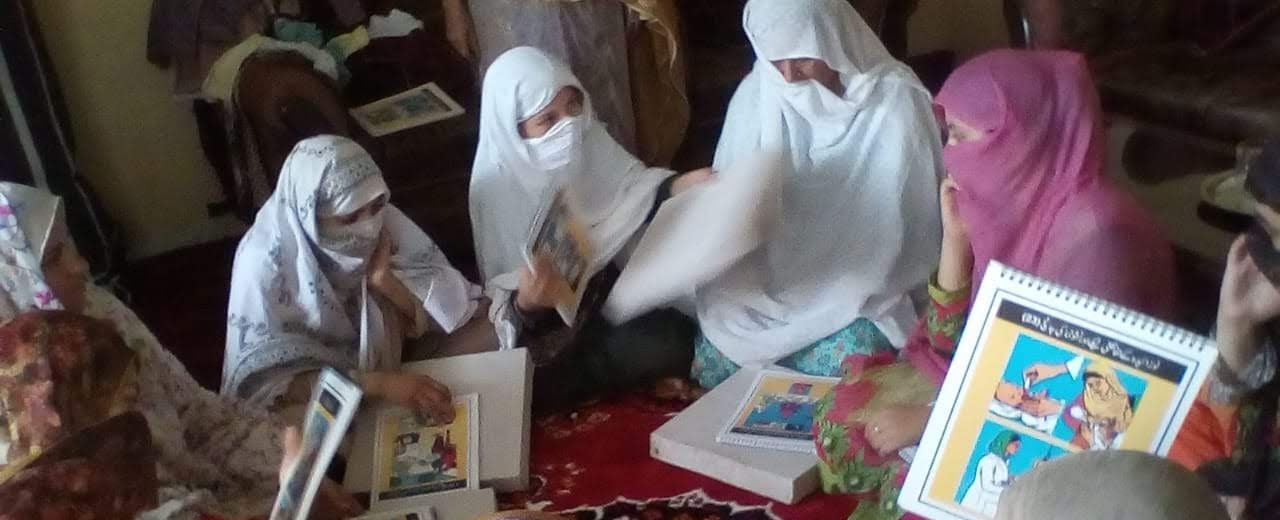News from 2024-07-11 / KfW Development Bank
Pakistan - strengthening physical self-determination

On 31 December 2023, there were 8,073,859,407 people living on Earth. That is 65,975,407 more people than a year ago, according to the German Foundation for World Population (DSW). To mark World Population Day on 11 July 2024, the German Foundation for World Population (DSW) is calling for greater gender equality. Half of the world's population is female, many still suffer from heteronomy, have poor medical care and lack access to modern family planning methods.
This also applies to women in Pakistan, where 154 women (out of 100,000 live births) die during pregnancy or childbirth - in Germany the figure is four. In rural areas in particular, many women have no access to contraceptives or reproductive health counselling. KfW Development Bank has been involved here for many years in cooperation with the non-governmental organisation Greenstar Social Marketing Pakistan (GS). Culturally appropriate educational measures focus on the health and economic benefits of longer birth spacing - and also address men. In Pakistani society, men play a key role in shaping a respectful society in which women can live freely and exercise their rights.
Target group: Men
In communities, Greenstar works with a network of male therapists (traditionally: Hakeems and homeopaths) and general practitioners and educates men about family planning and mother-child health. Educational and counselling seminars are held regularly on topics such as healthy spacing between births, gender equality, diversity and inclusion.
Effects: The example of Faisalabad and Bahawalpur
A programme supported by the Punjab Population Innovation Fund (PPIF) in the districts of Faisalabad and Bahawalpur focused on creating demand for modern family planning through behaviour change among men and women. Acceptance of modern family planning methods was promoted and quality services with affordable products were ensured through pharmacies, therapists and family doctors, hakims and homeopaths. Around 55,000 people were reached through the programme's educational events, 35,000 of whom were women. Following the events, around 45,000 couples opted for family planning, almost 9,000 women used contraceptives for the first time and around 17,000 opted for a long-term method.

Asma Bibi: a person affected reports
I am Asma Bibi and I live in Tehsil Barawal in the Dir Upper district. I have been married to Samandar Khan since 2022. When our first child, a girl, was born, we were overjoyed. One day I met Navin Zeb, a health worker trained by Greenstar. I learnt a lot from her about caring for our newborn - but also about family planning and the importance of healthy spacing between births, for mothers and children.
My problem: my husband rejected contraception on principle. I was worried about my health, as I had already suffered two miscarriages before our first child and I was not physically or mentally ready for another pregnancy.
I discussed my problem with Navin, who contacted the district health authority. A meeting was arranged with my husband, where he was informed about the importance of a young mother's physical and mental health and the consequences of another pregnancy if the mother cannot fully recover from the miscarriage. After a detailed discussion, Samandar agreed to use contraception - and he was extremely grateful to the entire team, who showed great compassion and patiently addressed his concerns - and so am I.
Greenstar Social Marketing (G) Limited – health.prosperity.future

Share page
To share the content of this page with your network, click on one of the icons below.
Note on data protection: When you share content, your personal data is transferred to the selected network.
Data protection
Alternatively, you can also copy the short link: https://www.kfw-entwicklungsbank.de/s/enzBWrMC.DGvA
Copy link Link copied